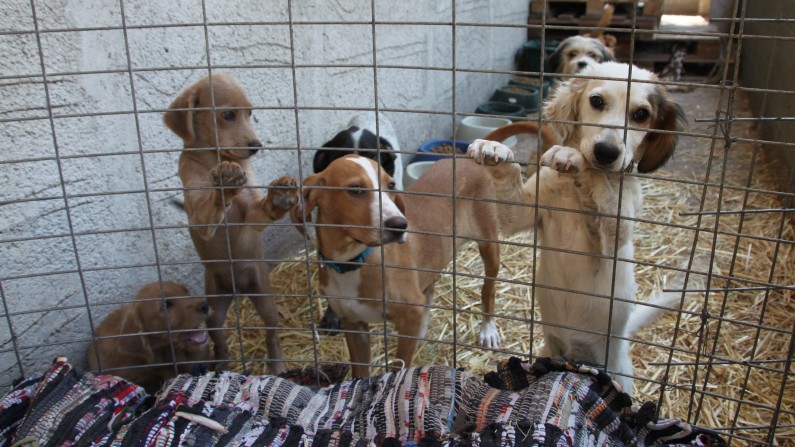
BERLIN, Germany — In a sprawling animal shelter on the outskirts of Berlin, Beate Kaminski scoops up a tiny, bug-eyed puppy called Luna and plunks her down on her office table.
Eight inches tall and a foot long from nose to tail, handbag-sized Luna is the kind of “designer dog” flooding into Germany from dodgy puppy mills across Europe.
Like Luna, many are abandoned on the street or dumped at facilities like this one when they fall sick from one of the myriad canine diseases that can usually be prevented by mandatory vaccinations.
Evidence suggests there’s an organized “puppy mafia” behind the trade. But Europe’s open borders, web-based sales and a reluctance to file criminal charges are making it almost impossible to stop.
“Basically, anyone can breed puppies,” says Kaminski, whose large-framed glasses give her the air of a librarian.
The largest shelter in Europe, Tierheim Berlin, or “Animal Shelter Berlin,” is an enormous concrete compound. Designed by the architect who built Chancellor Angela Merkel’s residence, it houses monkeys used for research in East Germany before reunification, abandoned and confiscated farm animals, exotic lizards, parrots, rabbits, and just about every animal you can name — along with 800 cats and 300 dogs.
With an annual budget of around $10 million, the shelter houses animals indefinitely if no one adopts them, resorting to euthanasia only in the case of terminal illnesses that cause undue suffering.
Many of the animals have gone through hell before getting here.
No one knows how many puppies and kittens are transported illegally into Germany each year. But activists like Kaminski say highway accidents and routine traffic stops revealing cars and trucks loaded with animals from the Czech Republic, Hungary, Poland and Slovakia — as well as a steady flow of sick and abandoned pets — hint at a booming trade.
“The puppy mill problem in the US is bigger than here, but we’re in danger of facing the same issue because of our open borders,” she says.
In one case, Autobahn police and animal control officers recovered more than 100 pug, bulldog, husky and Saint Bernard puppies after a truck from Slovakia crashed near the city of Schifferstadt in Southwestern Germany.
Puppies were stacked in boxes in a closed truck bed reeking of urine and feces, conditions a horrified veterinary department official said surely reflected animal rights violations across the border.
Nevertheless, police maintained there were no grounds for filing criminal charges in Germany, whatever conditions the pups might have been raised in.
“From a purely legal standpoint, there is no actionable offense because the animals have valid vaccination certificates and the necessary documents,” police spokeswoman Simone Eisenbarth told Germany’s Bild newspaper. “Unfortunately, our hands are tied.”
The problem isn’t unique to Germany.
The truck caught on the Autobahn was actually headed to Belgium. A similar case netted a major importer in Luxembourg last year.
In Britain, a recent Channel Four documentary revealed that the relaxation of the country’s once-stringent quarantine laws with the adoption of the EU’s pet passport system has resulted in a massive increase in puppy smuggling there.
The impotence of the authorities in Germany — where regulations governing the treatment of animals are among the toughest in the world — highlights the difficulty of stopping the cruel trade.
The driver in the Autobahn case was fined nearly $30,000 to cover the costs of rehabilitating and quarantining the pups, many of which were injured or sick. But such hefty fines are rare and the chances of being caught with direct evidence of mistreatment remain slim, meaning profits still outweigh the risks.
Public outrage is also fleeting, says the Berlin animal shelter’s Kaminski.
“You have headlines for one or two days and then the incident is forgotten,” she says.
Still, the country’s animal rights activists may be making at least some headway.
In May, Germany’s federal food and agriculture authorities held the country’s first roundtable discussion of the issue, focusing on possible new measures to combat the trade, including regulations that would require Germany-based retailers to obtain permits before importing any animals.
For Kaminski, there’s an even easier solution.
“If you want a puppy,” she says, “go to a shelter.”
This article was originally published on Global Post.

